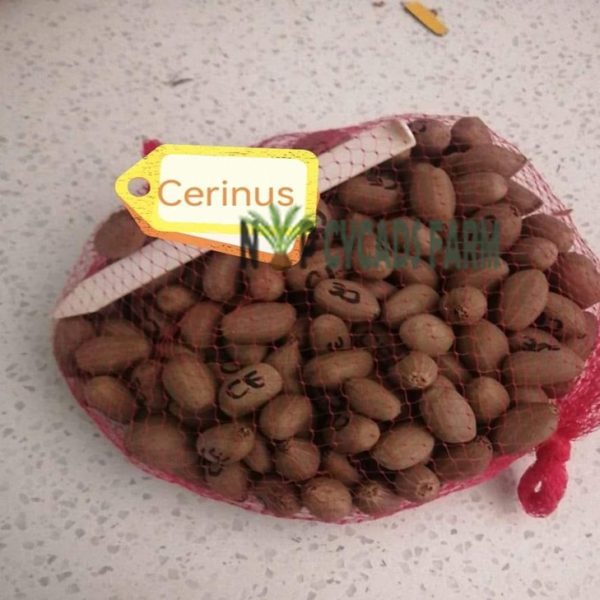Whatapp:
+278.3675.0634
Work Hours
Monday to Friday: 7AM - 7PM
Weekend: 10AM - 5PM

Original price was: $5.00.$4.00Current price is: $4.00.
Encephalartos cerinus seeds are oblong, measuring about 25–30 mm long, and are covered with a brightly colored sarcotesta
Encephalartos Cerinus Seeds are oblong, measuring about 25–30 mm long, and are covered with a brightly colored sarcotesta that ranges from orange to yellow. These seeds come from female cones that are egg-shaped, initially yellow and ripening to bright red, and the species produces one cone at a time that changes color from bluish green to yellow as it matures. The seeds are the primary means of propagation for this critically endangered cycad, which is native to South Africa and known for its waxy, bluish-green leaves and subterranean stem
Propagation of Encephalartos cerinus is almost exclusively by seed, as the plant rarely produces suckers. The species cones frequently and responds well to artificial pollination, making seed collection and propagation feasible under cultivation
. For optimal germination, seeds should be sown in river sand and kept on a heated bench at temperatures between 24–28°C. Germination typically begins about three weeks after sowing, though some seeds may take longer, especially without supplemental heat
Encephalartos Cerinus Seeds is critically endangered and possibly extinct in the wild, seeds and seedlings are rare and valuable. Seedlings are available for purchase from specialized nurseries, but prices can be high due to the plant’s rarity and slow growth rate
Seed size: 25–30 mm long, oblong shape
Seed coat (sarcotesta): yellow to bright red or orange
Propagation: primarily by seed, responds well to artificial pollination
Germination: in river sand, 24–28°C, starts ~3 weeks after sowing
Conservation status: critically endangered, seeds and plants are rare and expensive
This information is crucial for anyone interested in cultivating or conserving (Encephalartos Cerinus Seeds).
Reviews
There are no reviews yet.